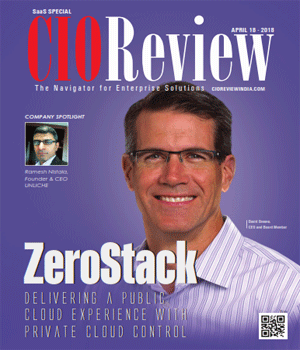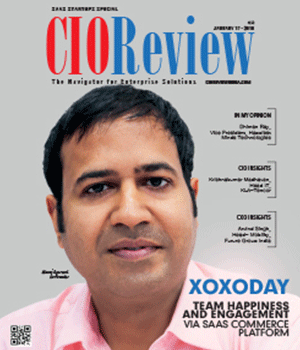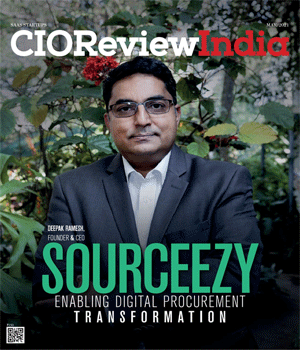
Big Data, Small Data, Good Data, Bad Data, never mind!
Chetan Kulkarni, Co-founder and CEO, Vizury | Tuesday, 22 March 2016, 11:44 IST
 10 years ago, a brand could probably have gotten away with a TV campaign, print ad and may be an email campaign. Today, customers connect with your brand on several online and offline touchpoints – store, call center, website, email, sms, social media and mobile app. With such a diverse set of access points and a growing number of devices, marketing just gets more complicated and you need data to fuel up your marketing efforts today. Collecting customer data seems to be the easy part. The challenge is to do something useful with it. Most brands today sit on a gold mine of data without knowing how to make the best use of it to drive their marketing.
10 years ago, a brand could probably have gotten away with a TV campaign, print ad and may be an email campaign. Today, customers connect with your brand on several online and offline touchpoints – store, call center, website, email, sms, social media and mobile app. With such a diverse set of access points and a growing number of devices, marketing just gets more complicated and you need data to fuel up your marketing efforts today. Collecting customer data seems to be the easy part. The challenge is to do something useful with it. Most brands today sit on a gold mine of data without knowing how to make the best use of it to drive their marketing.
What do your customers like? Where do they spend most of their time? Have they bought from you already? Are they looking to buy something right now? Do they like discounts or do they like freebies? Do they need something and don’t know it yet? If you have the answer to all of these questions, you are probably doing well. Even better, you are probably using a DMP (Data Management Platform). If not, you must read on.
1. Your marketing is driven by ‘silo’ed customer data
A DMP enables you to on-board customer data from various online and offline channels – website, social media, CRM, loyalty, campaign response, etc. – onto a single platform. Data in any format can be onboarded, from APIs to CSVs. You can perform advanced analytics, identify niche segments, build user scorecards and even conduct exploratory analysis to get titbits of key insights about your customers. This enriched single view of the customer helps you derive incisive insights to drive your marketing campaigns with much greater accuracy and efficiency.
2. You are using different tools for marketing on different channels which don’t talk to each other
The list of channels through which you can reach your customer is growing every day. Are you using different tools for your emails campaigns, social media and TV ads? Do these tools talk to each other? The answer is most probably – No. With different tools running different campaigns, how do you track performance and attribute conversion?
With a DMP, you can conduct all your marketing campaigns across channels at one place. Track the performance of your campaigns and target users on their preferred channels.
3. You are communicating different messages across different channels to your customers
Without the unification of data, your marketing messages are conveying different things on different channels to the same customer. You are not helping your customers take a buying decision by doing this. A DMP enables ‘real time omni channel personalization’. You can personalize marketing for your users across channels and devices. You can target the right audience with the right message at the right time through the right channel – all this in real time. It is all about making it easier for your customers to make that buying decision.
4. You are spending too much money on paid media without any real results
That’s because you still don’t know what the preferred channels are for your customers. You are not clear about which of your marketing channels really work and this is because your customers behave differently across these channels. For example, some respond to your sms, many others to your Facebook ads and very few click on your emailers. To engage with all your customers, go where they are.
If your user responds to your SMS, then why send him an email? If he responds to you on email, then why spend money chasing him on social media? A DMP lets you do this with precision. It helps you target users only on their most preferred channels. This way, you make the most of you owned media before you venture into spending millions on paid channels. Simply put, a DMP makes your marketing dollar work harder for you.
A DMP helps you know your users better and understand their personas. It enables you to reach them with a personalized experience at places they like it most. It helps you drive all your marketing campaigns from one place. In short, A DMP helps you maximize your marketing ROI.
CIO Viewpoint
2020 To Be A Trendsetting Year For The SaaS...
By Abhilash Garg, VP IT (SaaS), DMI Financial Private Limited
Baseline It Transformation In Digital Era
By Shibin Chulliparambil, Head of IT, Mafatlal Industries Limited
Scenarios And Challenges In Personal Data...
By Ajay Kumar, Group Head IT, Polyplex
CXO Insights
The Rise Of Developer-LED Innovation And...
By Subrato Bandhu, Regional Vice President, OutSystems
Four Questions To Answer Before Considering A...
By Shrikant Navelkar, Director, Clover Infotech
3 Focus Areas For An Autonomous Driving Revolution











